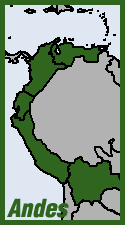 The government of Bolivia formally notified the UN Secretary General of its withdrawal from the 1961 Single Convention on Narcotic Drugs on June 30. The withdrawal will enter into effect on Jan. 1, 2012. At that time, Bolivia will re-accede to the Convention with a reservation on the coca leaf and its traditional uses. Bolivia's step—the first of its kind in the history of the UN drug control treaties—comes after the rejection earlier this year of its proposal to delete the Single Convention's Article 49 obligation that "coca leaf chewing must be abolished." A number of countries, including the United States, objected.
The government of Bolivia formally notified the UN Secretary General of its withdrawal from the 1961 Single Convention on Narcotic Drugs on June 30. The withdrawal will enter into effect on Jan. 1, 2012. At that time, Bolivia will re-accede to the Convention with a reservation on the coca leaf and its traditional uses. Bolivia's step—the first of its kind in the history of the UN drug control treaties—comes after the rejection earlier this year of its proposal to delete the Single Convention's Article 49 obligation that "coca leaf chewing must be abolished." A number of countries, including the United States, objected.
After its proposed amendment was rejected, Bolivia was constitutionally obliged to withdraw from the Convention. The country's 2009 constitution recognized the right to coca cultivation, and allowed for a period of four years for the government to "denounce and...renegotiate the international treaties that may be contrary to the Constitution." The decision to withdraw form the Single Convention was approved by a vote of Bolivia's Plurinational Legislative Assembly.
According to Article 384 of the 2009 constitution: "The State shall protect native and ancestral coca as cultural patrimony, a renewable natural resource of Bolivia’s biodiversity, and as a factor of social cohesion; in its natural state it is not a narcotic. Its revaluing, production, commercialization and industrialization shall be regulated by law." (Aid Netherlands, July 1; Transnational Institute, June 30)
The UN International Narcotics Control Board (INCB) called the decision by Bolivia an unprecedented step. "The board is of the opinion that while this step by Bolivia may be in line with the letter of the convention, such action is contrary to the convention’s spirit," the INCB said in a press statement. "The international community should not accept any approach whereby governments use the mechanism of denunciation and re-accession with reservation, in order to free themselves from the obligation to implement certain treaty provisions." Such an approach, it added, could undermine the integrity of the global drug control system. (UN News Centre, July 5)







Recent comments
4 weeks 3 days ago
4 weeks 3 days ago
7 weeks 4 days ago
8 weeks 3 days ago
12 weeks 3 days ago
16 weeks 2 days ago
20 weeks 2 days ago
21 weeks 14 hours ago
31 weeks 14 hours ago
35 weeks 1 day ago